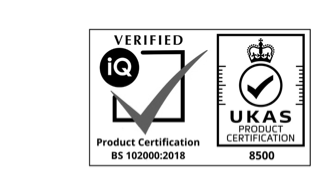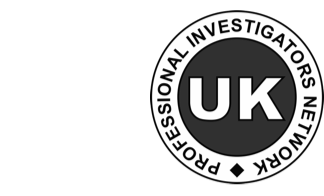- What is Corporate Espionage?
- What isn’t corporate espionage?
- Protecting Trade Secrets: What does the law say?
- What industries are susceptible to corporate espionage?
- How Industrial Espionage could harm your business
- Know the signs of corporate spying
- Look out for these red flags
- How to Protect your Business from Corporate Espionage
- How Corporate Investigation Services Can Help
- Keeping Trade Secrets Safe
Your business operates successfully in a competitive market by having something unique. Whether it’s a product idea, process or market research data, the information you use to set your business above the rest is valuable to your competitors. In every industry companies have their own trade secrets: the unique ideas that put bread on the table. For every secret sauce, however, there are competitors trying to recreate your recipe or even steal it from you. All businesses gather intelligence about their competitors, but stealing intellectual property crosses the boundary from rivalry to criminality. Corporate services from a private investigator can help protect your business form corporate espionage.
Many people think of corporate espionage, or industrial espionage, as a dangerous and exciting drama that happens only at the highest levels of major companies. This misconception often leaves smaller businesses unprotected, assuming their secrets aren’t valuable enough to steal. Most often, industrial spies are hired by competitors to gain access to your confidential information. Spies use covert methods such as computer hacking or going undercover, making them hard to spot. This article will help explain the law on industrial espionage, how to protect your business, and how corporate investigation services could help.

What is Corporate Espionage?
Corporate espionage, industrial espionage or corporate spying is the use of covert techniques on behalf of organisations (rather than nations), for financial or commercial gain. This includes acquiring intellectual property by theft or unlawful means, such as hacking or the use of hidden monitoring devices (bugs). Targets may include patent information, industrial manufacturing processes, or research. Corporate spying is a lucrative high risk, high reward business, as confidential information is valuable to other companies.
Industrial espionage can be as simple as an insider transferring trade secrets to a competitor. This might be a disgruntled employee or someone who has been headhunted out of your business, taking information with them.
Other times, espionage techniques in corporate spheres can be more dramatic. According to LegalMatch, the following techniques are all classed as industrial espionage:
- Trespassing on a competitor’s property or accessing their files without consent
- Working undercover as a competitor’s employee with the intention of learning trade secrets or other confidential information
- Hacking into a competitor’s computers
- Attacking a competitor’s website with malware
- Wiretapping a competitor with monitoring devices either on phone lines or within the premises.
It is important not to overstep the legal boundaries afforded the situation in the course of your investigation. An objective outsider, such as a private investigator, may be able to gather evidence without risk to the company.
What isn’t corporate espionage?
Corporate espionage is not the same as breaching a non-disclosure agreement. It is not bringing knowledge gained through normal means to a new job. Sharing what has been openly disclosed or accidentally overhearing confidential information are not punishable under trade secrets laws. Finally it is worth noting that whistle-blowing does not constitute the disclosure of trade secrets.
Protecting Trade Secrets: What does the law say?
In the UK, legal accountability for corporate espionage depends on each individual case, as the activities involved vary. Laws which relate to corporate espionage include the Data Protection Act 2018 and, more strongly, the Trade Secrets Directive 2018. The Trade Secrets Directive provides a basic level of protection for companies by:
- creating a unified definition of trade secrets
- codifying the remedies for unauthorised use of trade secrets
- preserving confidentiality, through adopting measures to ensure the details of the trade secret are kept confidential during litigation
“Trade secrets” are defined as information that is required to be secret and which has commercial value because it is confidential. Companies must keep information which they regard as trade secrets out of the common company knowledge in order to make a claim that they have been stolen.
The consequences recommended for the misuse of trade secrets are often interim and final injunctions. However, proportional interim actions may be granted by the judiciary without notifying the respondent. These include search and seizure orders, preservation orders (requiring the respondent to preserve any evidence before the trial) and Delivery Up orders. Delivery Up orders require the culprit to give information, such as a sound copy of their electronic files, to be reviewed in legal proceedings. If the circumstances demand it, these orders can be made ‘on the door step’. This demands the immediate production of the material without prior warning. This kind of order is used where the risk of evidence being deleted is high.
What industries are susceptible to corporate espionage?
Most people associate this danger with financial services and digital corporations. However, savvy business owners know that corporate spying can affect any industry. Famous cases include attacks on Kodak, IBM and Gillette, but there are countless cases to study. Whatever your company produces, it is important to be aware of the risks of industrial spying.
In recent years, an increase in corporate attacks traced back to the Chinese government has led to specific concern about global companies being targeted for the benefit of competitors in China. These attacks commonly target companies with information about scarce natural resources or military technologies. Also at risk are companies working within the information and communications technology sector, or providing services through national infrastructure, such as water or energy companies.
How Industrial Espionage could harm your business
If trade secrets are leaked to your competitors, they could be used to directly copy your products or processes, to undercut you in business deals or block plans instrumental in your success. Competitors will increase their market share at the expense of your company, reducing your revenue and putting you at risk of bankruptcy.
Know the signs of corporate spying
Unfortunately, techniques of corporate espionage are constantly changing. Stay ahead of the game by monitoring new employees closely. Look out for those who appear to have knowledge they shouldn’t, are found in restricted areas or ask about confidential subjects.
Employees who are leaving to join competitors are also at risk of being headhunted as potential spies, particularly if they are vulnerable to blackmail.
An employee stealing company secrets will almost always behave strangely. None of the signs listed here are definitive evidence of spying, but managers should look out for and take note of any of these signs.
Look out for these red flags:
Compromised employees might work strange hours without permission, or attempt to access restricted areas. They might unnecessarily copy classified material, take information home, either as a hard copy or on personal hard-drives. They may send proprietary information via email without authorisation.
If the employee is selling information to a more sophisticated power, they might ignore company policies about installing personal software or hardware. They may also take frequent short, unexplained holidays in other countries.
It is important to take note if an employee behaves in ways which suggest paranoia. This could be showing excessive concern about being investigated, leaving traps in their home or office or looking for listening devices or cameras. These cases warrant a conversation from a place of concern first, as they may need help with mental health concerns. They may be trying to alert you to spying they have spotted. While paranoia is not an admission of guilt, this behaviour would be reasonably expected of someone who is hiding their own actions.
As with all cases of unscrupulous employees, a careful and objective hand is necessary when you suspect someone of stealing company secrets. Employers might consider hiring a private investigator to gather more information or evidence before proceeding.
How to Protect your Business from Corporate Espionage
It’s important to ensure that you protect your business and that all employees maintain the highest standards of security. Make clear that it is a collective responsibility to protect the company from outside aggressors, and that everyone needs to be vigilant. Set up protocols for storing laptops, memory sticks and hard drives and ensure employees do not leave these unattended. Install security checkpoints at various points throughout the premises and ask all guests to sign in at reception.
How Corporate Investigation Services Can Help
As a company owner, it can be difficult to know how to investigate employees safely and without damaging a valued working relationship. If your employee is showing signs that they might be trading corporate secrets, it is important to be able to investigate discreetly, without making the investigation common knowledge and alerting the suspect.
Private investigation agencies, such as RevealPI, are equipped with the specialised legal knowledge to support a proportional response to any suspected espionage. Private Investigators are experts in surveillance, allowing them to track a suspected employee to ascertain their movements. By using an accredited agency, specialising in corporate investigations, you get high quality evidence of spying without personal risk.
Corporate investigation services also include bug sweeping. This is a method of searching for hidden monitoring devices such as microphones and cameras, that record confidential information or trade secrets. At RevealPI, we offer our clients access to lie detector testing. In a case of suspected corporate espionage, it may be helpful to rule out the involvement of certain colleagues by using this accurate bio-metric test.
Keeping Trade Secrets Safe
Companies often do not uncover cases of corporate espionage, insider trading or corruption until after the culprits use the leaked information. A competitor undercuts your bid for a contract at the last minute, for example, and you realise they knew your plans through unscrupulous means. When key business information and trade secrets are at stake, finding out at this point is too late. Regularly audit your company’s security protocols, including online and building security, to ensure they are up to date.
For more advice on how to protect your trade secrets, or to discuss a suspected case, you can contact RevealPI without any obligations. Our discreet and professional investigators can assess your case and assist with surveillance and security installations.
Ever considered hiring a private investigator in the UK? Call Reveal PI Today at 0330 808 9344 or visit 11 St Paul’s Square, Birmingham, West Midlands B3 1RB.

 Surveillance
Surveillance Matrimonial Investigations
Matrimonial Investigations Bug Sweeping
Bug Sweeping GPS Vehicle Tracking
GPS Vehicle Tracking Lie Detector Test
Lie Detector Test Person Tracing
Person Tracing Employee Investigations
Employee Investigations Asset Tracing
Asset Tracing Fraud Investigations
Fraud Investigations Injury & Insurance Investigations
Injury & Insurance Investigations










